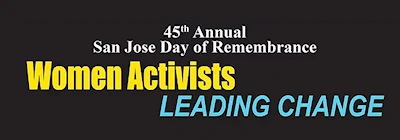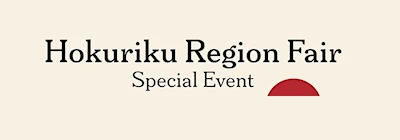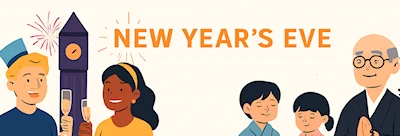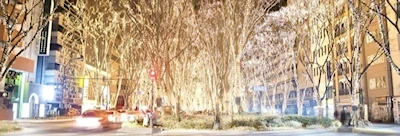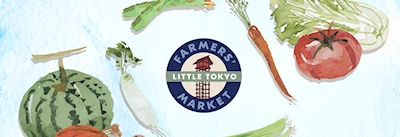Nisei Week Bon Odori - Little Tokyo, Japantown
Event Location
Los Angeles, CA 90012
Nisei Week History
Nisei Week Background and Events in August
History of Nisei Week
As it still does, the first Nisei Week in 1934 brightened Little Tokyo for seven days and nights. That was fifty-six years ago, August 12 through 18.
A global war disrupted its unbroken sequence. Its Golden Anniversary would have been, not 1990, but George Orwell's fateful 1984.
In the depth of the Great Depression, Nisei college graduates worked for Susumu Hasuike's 3-Star Produce chain for $80 dollars a month. Little Tokyo merchants catered mostly to Issei patrons. Even then Little Tokyo was the hub of the largest Japanese American population on the U.S. mainland, but it was an unpromising retail area, stable but not expanding.
The Issei controlled it completely, as they did the community. We respected our elders, but their ideas were getting old.
Exuberant Nisei came up with the idea of Nisei Week to lift the gray cloud of the Great Depression. They urged the Issei to cater more to Nisei patronage both in hiring and retail practice. That done, they would bring the customers. The JACLers sold the idea to leading Little Tokyo Issei merchants.
Enough Issei merchants believed them to help fund the early effort. The Nisei went to work. They organized. It was a milestone in Little Tokyo community cooperation.
Who were the Nisei? First general chairman of Nisei Week was Clarence Arima, his co-chairman was Kay Sugahara. Arima was the Nisei manager of the Issei-owned Union Paper Supply Co. Sugahara was owner of Universal Foreign Service, a customs brokerage firm. Names in the first Nisei Week program identify the nucleus of the organizing team: Seiichi Nobe, John Ando, Tetsu Ishimaru, John Maeno, Sue Ando, Ruby Sakai, Etsu Sato, Msao Igasaki, Yogoro Takeyama, John Yahiro. They were more than 10 years older than most Nisei. Established in their vocations, they were a Little Tokyo Nisei leadership group. John Maeno, who became chairman of the third Nisei Week, wrote in his program:
'The Nisei is a new American. Racially of the Orient, he is true and loyal citizen of the United States, his native land. Young, ambitious, hopeful, though at times oppressed, he seeks to take his place in civic development and community progress.'
This J.A.C.L. message became a fixture. It was interspersed with the commercial marketing thrust of Issei shopkeepers. Nisei Week became an instrument not only to revive and revitalize Little Tokyo's economic base, but to expose the non-Japanese audience out there to the Nisei's message that the successors to the Issei were a generation of Americans.
That mainstream community outside Little Tokyo was not terribly interested in, nor receptive to Nisei offerings of their Japanese cultural inheritance. But from the outset, the Nisei organizers planned their attractions around the best they could offer in ondo dancing, Japanese floral arrangements, tea ceremonies, martial arts, fashion shows, kimono-clad queen and attendants, calligraphy, art shows, and talent programs, in the hope that the transpacific cultural bridge would somehow flower and bloom.
In the ensuing half century, Nisei Week's format has undergone surprisingly little change from its basic orginal. The ondo dance parade has continued to be a crowd drawing spectacle.
Joseph Shinoda, Nisei graduate of Pomona who built San Lorenzo Nursery Company into a leading national grower and distributor of roses and floral products, wrote an occasional column for the Rafu Shimpo. About that First Nisei Week's ondo parade, he observed that some Issei, surprisingly, were out there in the streets with the dancers:
'They gyrate in those pigeon-toed steps with the seriousness of cogitating jurists; when not lost in the contemplation of the next dance step, they smile with the same ingenuous smile they use in business- a little sheepish but still a smile more than a grimace.'
Were the founders, Issei and Nisei alike, of Nisei Week satisfied with the results? I believe they were. It has become a tourist institution. As Southern California's population continues to explode, Nisei Week draws visitors from around the globe as well as participation from the third, fourth, and fifth generations descended from its founders.
Contact
Phone: (213) 687-7193
Location Website
Click to Visit
(For Event Information See Event Website Page)
Little Tokyo Japantown Guide, Los Angeles
Little Tokyo Guide: Best Restaurants & Attractions..
See Nisei Week Schedule: List All Events
Nisei Week: 2 Week Event ScheduleAug 2026
Event Schedule at bottom of page
Sawtelle Japantown Guide, West Los Angeles
Sawtelle Japantown Guide: Best Restaurants & Attractions..
Authentic Japanese Gardens (United States)
Best Japanese Gardens
Japanese Rock 'Zen' Gardens (United States)
Best Japanese Rock 'Zen' Gardens
Japanese Teahouses (United States)
Best Japanese Teahouses
Japanese Museum Art
Japanese Museums Map of Japanese Museums



